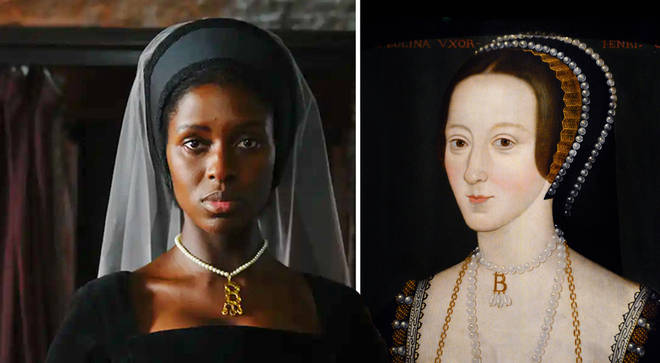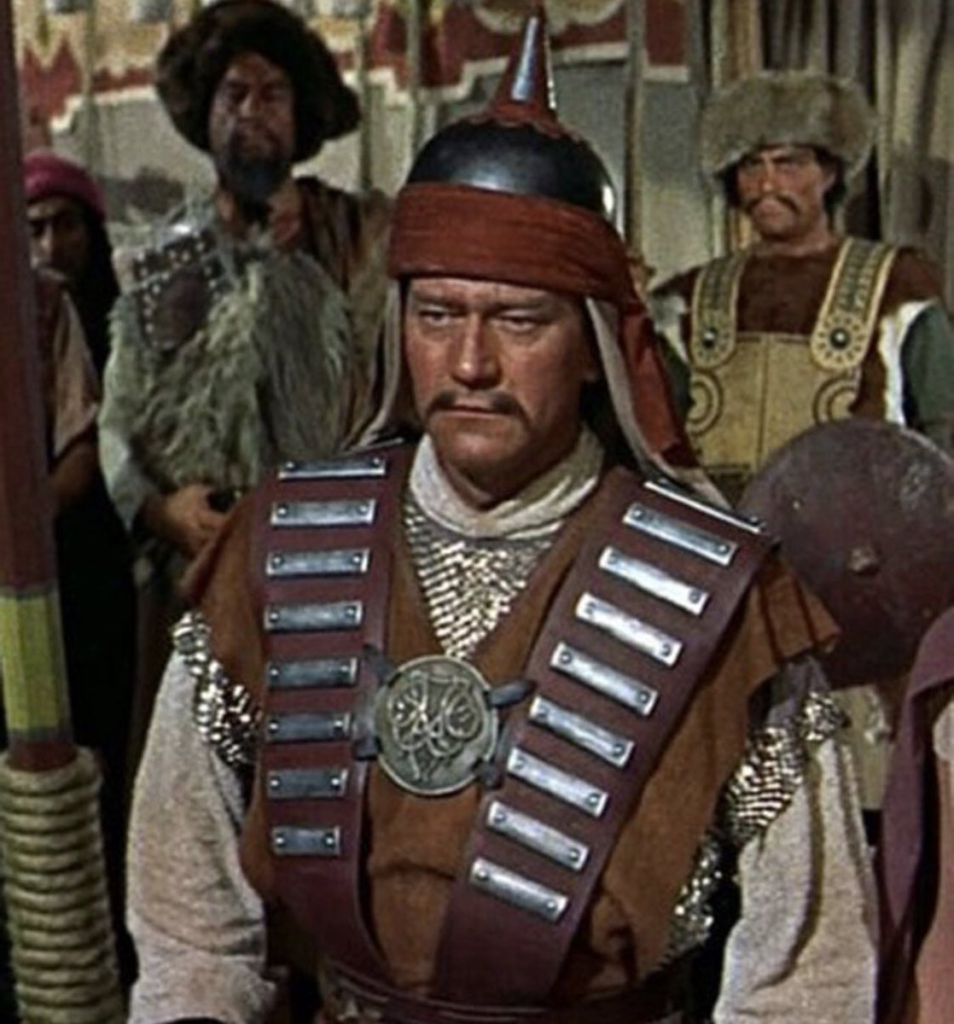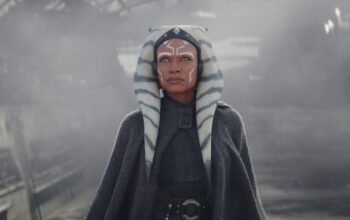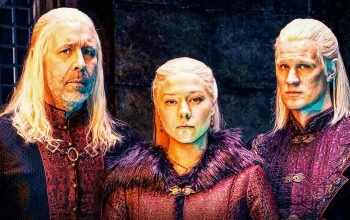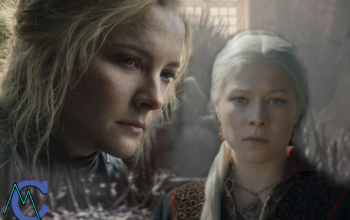Yeah, so I’m disabling the comment section on this one…
– Dirk Hortensius,
Editor @ Crude-Mirror.com
This may be a touchy subject for some – undoubtedly one of the more controversial topics on this discussion forum – but as a film critic, nerd, history buff, and “woke white boy” all wrapped up into a nice opinionated bow: history needs to be told faithfully.
I want to discuss the issue of diversity and inclusion portrayed in the media in recent years because I care deeply about social equality for all people of color and ethnicity. I understand and fully support the need for representation because we are well overdue, and opportunities for minorities should be explored to their full potential. Not only is this good for society, but helps revive an already stale entertainment system.
In recent remakes such as Django Unchained, Fant4stic, and Catwoman we see fictional characters that were once played by white actors now played by people of a different race. There are even calls to have James Bond to be played by Idris Elba. The reason we are more open to these changes is because these are fictional characters – who for the most part their skin color never made them special. We must push beyond the days of “white heroes only” exclusion that has denied opportunities for minority actors and representation for minority audiences since the inception of film as a medium. (see: Black Panther)
That said, we should tread this situation carefully when it comes to a set period of history. There were 3 projects in particular over these recent years that inspired this long coming rant.
The key to this matter is context – what is this movie meant for, and what is it set in? As both a history major and movie buff I’m concerned about these recent alterations as it feels like changing history under the guise of modern social progress.
For better or worse, history is history – and it doesn’t give a **** about our modern values. You can either learn it accurately or not at all.
– DIRK hORTENSIUS, eDITOR
The reason these castings come across as patronizing is because the people who make these movies/shows are shoehorning people who don’t even remotely resemble their historical counterparts, making it clear that they don’t care for the period they are set in. This ironically undermines the idea of inclusivity or color blind casting because it forces the conversation back to race instead of judging actors by their talent.
Exhibit A: Troy: Fall of a City
The first case that must be discussed is BBC Netflix’s Troy: Fall of a City. Released in 2018, this 8-part miniseries is controversial for its use of black actors in several main roles, including (but not limited to) Zeus, Aneas, and most notably Achilles himself.
Now before we go down the same old rabbit hole about how African complexions would be quite rare in the general Mediterranean area at the time, It’s worth noting that they never show us actual Greeks either. Ironically, this show is more guilty of whitewashing, as is most other media set in the era. Where’s the olive skin and long noses? Do these people look like they can take a week of sailing in the Mediterranean sun without a bucket of aloe on standby?
But back on the use of diversity – if, say the producers wanted a more diverse cast for an inclusive re-telling, they seemed to take it at a half measure by stopping at “Black”. Where are the Asians, Indians, or Middle-Eastern complexions? The latter would actually have been a more accurate depiction for some of these characters, given that we know Troy was in modern-day Turkey. It’s clear that the filmmakers just pushed for black tokenism rather than truly caring for diversity and representation.
There is an argument some people have had in favor of this casting – The Trojan War is more of a legend than recorded history. In that sense, legends told by Homer in a poem aren’t treated as necessarily accurate in the same way as actual recordings written by historians like Herotodus. However, Troy is still set during an actual time and in a very real place. Further undermining this argument is the show still trying to be a “history-based” character drama like Gladiator and other sword-and-sandals movies. Despite the gods appearing more in this series than the 2004 Brad Pitt film (yet another film with more pasty white “Greeks”!) the gods seem to have no other purpose than to give visions or stare blankly and awkwardly in the background. If the show was embracing more of the fantasy aspect, such as seeing more of the gods of Olympus arguing amongst who to support, (similar to how it was in the original poem), then I think there’s more leeway with regards to character races. However, since this show is clearly attempting to depict pseudo-history over playing fantasy, my begrudging point remains.
Exhibit B: Mary Queen of Scots
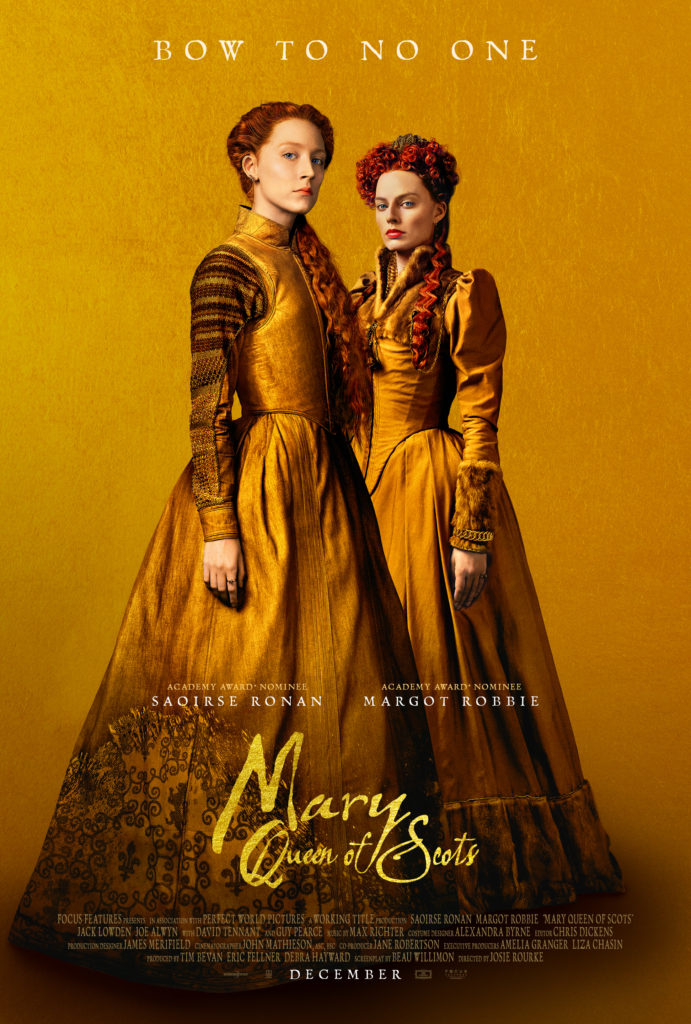
Another movie released the same year is Mary Queen of Scots starring Saoirsie Ronan and Margot Robbie. While the main two noblewomen are appropriately cast as pale and curly, their supporting cast and court is full of color. It’s not just putting in a few background extras in for diversity points this time.
It is true there have been a number of African “servants and musicians” at court. Upon further research I found out there were small black, enclaves in late Tudor Britain; this was the Dawn of colonization after all. There was even evidence that some were descendants of slaves, servants and mercenaries left marooned from Roman times. However, they still would have been few and far between numbering roughly several thousands in total – nowhere near the numbers in Britain today. More importantly they weren’t in a position of high-status lords (of Scotland, at least) like in the movie. The historical facts mentioned earlier could’ve been interesting to explore in another film however, Queen of Scotts was more interested in focusing on her personal story then establishing any world building. They did not provide enough of an explanation as to where these characters came from, largely due to the fact we were not given any explanation, only resulting in confusing viewers and prompting this article of ire.
Regardless, It is simply an undeniable fact that noblemen/women in Elizabethan Britain were not just predominantly, but ridiculously white. This was the era of peak Hapsburg jaw. In order for someone like Thomas Randolf (lower right) to be Elizabeth’s ambassador to Scotland he would have to have been someone of noble european heritage to have those kinds of responsibilities. So far as I have been looking, no black person in England achieved that status, and Randolf’s historical counterpart certainly wasn’t black.
Director Josie Rourke stated “I was really clear, I would not direct an all-white period drama.”. Rourke’s idea for this movie was a noble goal badly executed for reasons stated earlier. Over-representing a minority is one thing, but there are other characters whose race (or other characteristics) are much more out of place. Queen Elizabeth’s handmaid is clearly of Asian descent, and there is one character in Queen Mary’s court that is supposed to be Italian – but he comes across as flamingly gay Filipino. The latter sticks out like a sore thumb in every scene where he has focus, (despite how many historical figures legitimately were LGBTQABCDEFG+) simply due to how modern stereotypes were not present during Elizabethan court etiquette. There’s a whole subplot where’s he’s sleeping with Mary’s husband (no evidence) being plotted against and killed by the Scottish nobles for his lifestyle, Loras Tyrell-style. This anti-bigotry message ends up feeling panderingly tacked on in a period drama which is already themed around two female monarchs in a male dominated world (16th century girl power, y’all – Dirk). Imagine watching a film about Catherine the Great’s rise to the Russian Throne suddenly interjecting a wild reference to the Black Lives Matter movement. Pick a cause and stick with it – we don’t need to hit every progressive trope at once.
Again, this racial casting in this movie doesn’t work because of the context. It’s played as a completely straight period drama with no fantastical or artistically stylized elements in sight. If you are going to tell a straight biopic on Scotland’s only reigning female monarch, tell it truthfully with your cast. The only way this could have worked is if it was told in a Shakespearean tone – or some similar storybook form like a hip professor in history class.
Exhibit C: Anne Bolyn (2021)
And now we come to the current controversy and my domineering inspiration for this editorial rant – the new BBC miniseries surrounding the trial of Anne Boleyn.
For those who slept through European History 101, Anne Boleyn was King Henry VIII (the fat one)’s 2nd wife whom he married with the hopes of producing a son. Anne gave only a daughter (Queen Elizabeth I) as well as several miscarriages. Eventually she was put on charges of adultery and executed. It was a story that captivated people for centuries as Henry broke England away from the Catholic church just to marry Anne, only to casually discard her. So it comes to no surprise that Anne’s story has been told in various books and films (my favorite portrayal being The Tudors by Natalie Dormer). In this new series Anne is played by Jodie Turner-Smith from Queen and Slim fame. Speaking as a personal fan of Tudor history in particular, my inner history geek has to weigh in rant a fair bit on this one.
The creators of this show described this series as a “psychological thriller, done through a feminist lens.” Given the ethnic melting pot that is modern-day Britain, it is not surprising work such as this is opening up to be more inclusive. In fairness to my previous examples, there are ways one can find an argument in favor of a more aggressive casting. Exhibit A (Troy) surrounded the telling of ancient legend; Exhibit B (Queen of Scots) focused on minor side characters. Exhibit C (Anne Boelyn) however, is an actual reskin of a very real and very documented historical figure that played a significant part in British history. There’s no geography, loosely interpreted records, or obscure character backstory in play here – we have the closest thing to photographs the 16th century had to offer.
Now, with all these points said, I’m not saying you can’t have people of color play these historically white roles – you just need to frame your story right.
In an interview with Jody Turner Smith she described that as one of the inspirations for this decision.
“Hamilton is a really great example of how amazing it is when you just open up the space to tell a story with non-white actors, It makes that story that much more relatable, because it just becomes a human story and a story for all of us. Not just a story for white people.”
Source: Independent
I agree with her position, but with a caveat – Hamilton is a prime example of what an artist can do to re-imagine this tale. Unfortunately, this is far from a 1:1 comparison – Hamilton was 1) a hip-hop musical 2) not meant as a period-accurate portrayal. Furthermore, Hamilton‘s play on race was executed as an ironic flip, with Hamilton himself as a Latino as the character was born in the Caribbean, making him a proto-American immigrant. Hamilton’s goal was to put a modern twist to history. There was a clear artistic choice that’s rooted deeply into American racial history; it wasn’t done to check off someone’s list. Not so much color-blind casting, but rather color-conscious.
What connections does Anne Boleyn have with black history?
There seems to be a theme in this series about an innocent woman being accused in a trial. I think what they’re hinting at is that her blackness is supposed to symbolize some sort of connection to the unjust mass incarceration of BIPOC people we all too often see today. They even add modern day (and out of place) gospel music to drive That message home. However this kinda ties into what I said earlier, what on earth does Renaissance England and Black Social Justice have in common? My remark earlier about Catherine the Great and having a BLM reference has suddenly taken new meaning.
But you want to know one thing about this trailer that really bothered me? saying that “you know the history, but you don’t know her story” actually yes we do, quite a lot in fact. There are numerous portrayals of her in the media, a seductress, a pawn in her family’s game, or someone King Henry VIII fell hopelessly in love with until she could not give him a son. To take one of the most consequential Women in British history and appropriate her story just to push some sort of social justice message is insulting to people’s intelligence. If I want to see a movie about racial injustice I’d go watch Judas: the Black Messiah.
This can work if it was clearly set to look similar to Netflix’s Bridgerton in that it’s set in a parallel universe where everyone’s race was accepted (a nice dream, eh?), but there doesn’t seem to be any hints of it as far as I can tell. Now I hope Jodie Turner Smith will try to deliver a good performance (instead of just being all stoic) and I wish no ill will on her or any of these actors, I am merely suggesting that these casting choices in the way they are being pushed hurt the cause of equal justice then more actually help.
So what keeps going wrong?
The previous movies I ranted about suffered because they were trying to tell a true story realistically with unrealistic casting. There are other examples of period dramas that made similar choices, but never got the same criticism. The Hollow Crown series based on Wars of the Roses features a black Queen Margaret of Anjou, but it was essentially a filmed Shakespearean play so not playing to be realistic. While not exactly race based in 2018’s Death of Stalin no one even speaks with a Russian accent, but it’s first and foremost a dark comedy, they are allowed to get exaggerated. In a more recent Netflix show Bridgerton, despite being played as a classical period drama set in 1813 London, the story is told by a salacious narrator – making it clear that this is an altered reality where race just isn’t treated the same as in our universe. There is an upcoming movie of Shakespeare’s Macbeth set to star Denzal Washington, that’s gonna be shot in black and white, the visual style alone hints that its saying f..k history cause it’s Shakespeare and its f…..g Denzal Washington.
Now, for an example that would not work. Let’s say someone made a movie about Hitler, but played a (chinese) (Arab) person. On paper there is potential for something hilarious or even provide insightful commentary. However, If it’s directed as a serious bibliography it wouldn’t work. Many people know what he really looks like so there is no point in changing his appearance. Instead, it feels like a vain effort to get controversy to get the progressives on your side without at all caring about the group they represent. There’s a reason why whenever trailers for these kinds of movies are released they have people in the comment section saying “coming soon a biopic of Martin Luther King played by Brad Pitt”.
Conclusion and Token Beef
The biggest issue I take from these castings is it shows the blatant hypocrisy of both Hollywood producers and the BBC, hiding their still discriminatory practices behind tokenism and overtly activist writers. Producers only see money and the bottom-line draw of movies with diverse leads now that they’ve finally gotten widespread acclaim (see: Black Panther). There are now incentives for studios to push for more diverse roles. By cashing in however they only listen to Woke focus groups that are only interested in pushing social commentary over story. They don’t care so much about history or fair representation, and rather just seem to be pushing their goals for more color on screen whether they make sense or not.
There are other projects that are made that delve into such struggles with far more maturity and thought. Why haven’t we seen recent films about the Zulus or the Male empire that can easily rival Game of thrones if they were adopted on screen. Historical shows don’t always have to have black leads either, HBO Max’s Warrior (criminally underrated) focuses on Chinese Immigrants and Gangsters in 1870’s San Francisco Chinatown. Instead of shoehorning people of color in these knowingly white roles, tell stories that that actually happened or could’ve happened.
Because times have changed, much in the media over the past 40 years with people’s awareness becoming higher and there is now more demand for more talent than ever. This naturally has put more pressure for inclusivity in the film industry. It is a stance I agree with, but at the same time, where I draw the line is when historical periods change an actual person’s physical appearance. Unless it’s a choice where that makes sense. I make these same complaints the same way I would not have cast John Wayne as Genghis Khan, Alec Guinness as an Arabian prince, and Joel Edgerton as an Egyptian Pharaoh (yes that happened). If we are so rightfully angry about whitewashing, then we should be open to criticize this.
